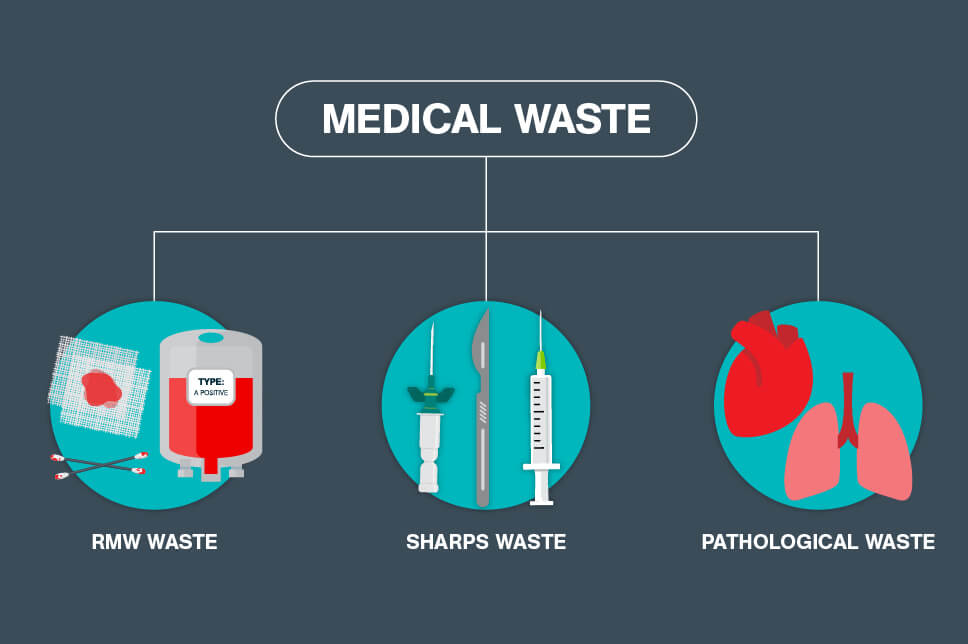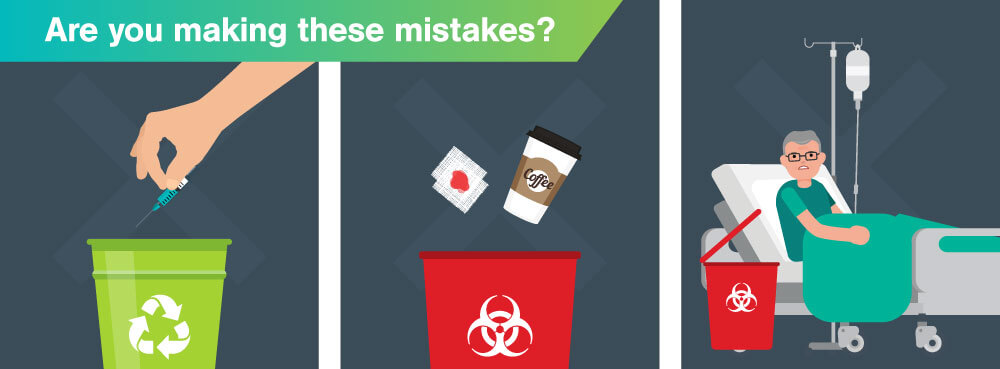Making Sure Safe Handling and Disposal of Medical Waste
Guaranteeing safe handling and disposal of medical waste is of vital relevance in medical care settings. Incorrect administration of medical waste can pose considerable dangers to the setting, public wellness, and healthcare employees. This necessitates adherence to strict guidelines and protocols for its risk-free handling and disposal. In this introduction, we will discover the relevance of proper medical waste monitoring, the risks related to inappropriate handling and disposal, along with the guidelines and techniques that can be implemented to ensure its risk-free disposal. Additionally, we will review the importance of training and education for health care professionals in order to preserve a tidy and secure healthcare setting. By following these methods, we can properly reduce the potential risks connected with clinical waste.
Relevance of Proper Clinical Waste Administration
Correct medical waste monitoring is of utmost significance in making certain the safety and security and health of medical care specialists, clients, and the general public. Clinical waste describes any kind of waste created by healthcare facilities during the diagnosis, therapy, or booster shot of animals or human beings. This waste can posture significant health risks otherwise handled and disposed of appropriately.
Among the key reasons why appropriate clinical waste monitoring is essential is to stop the spread of infectious conditions. Clinical waste, such as utilized needles, infected dressings, and biological products, can carry hazardous virus. If not dealt with and taken care of appropriately, these virus can be transmitted to healthcare employees, individuals, waste trainers, and also the public, leading to the possible outbreak of diseases.
Additionally, correct clinical waste administration assists shield the setting - medical waste disposal. Medical waste contains hazardous products, consisting of chemicals, drugs, and radioactive compounds. When not managed suitably, these substances can pollute soil, water bodies, and the air, positioning a significant danger to ecological communities and public health and wellness
Additionally, reliable medical waste administration makes sure conformity with regional laws and international requirements. Federal governments and governing bodies have actually developed guidelines and procedures to guarantee the secure handling, storage space, transport, and disposal of clinical waste. Complying with these guidelines is vital to avoid legal consequences and keep the online reputation and reliability of medical care facilities.
Threats of Improper Handling and Disposal

If clinical waste is not effectively disposed of,Patients can additionally be subjected to these contagious diseases. If infected needles or various other sharps are not disposed of in marked puncture-proof containers, they might unintentionally prick individuals, leading to potential infections. If medical waste is not segregated effectively, there is a risk of cross-contamination between different kinds of waste, more increasing the opportunities of disease transmission.
Incorrect disposal of medical waste can additionally have damaging effects on the environment and the basic public. If medical waste is not dealt with and dealt with correctly, it can contaminate water sources, soil, and air, leading to the spread of conditions and pollutants. This can have long-term consequences on ecosystems and public health and wellness.
Guidelines for Safe Handling of Medical Waste
Implementing efficient methods for the secure handling of medical waste is vital in ensuring the defense of medical care specialists, individuals, and the general public. These guidelines are crucial in minimizing the dangers linked with the handling and disposal of medical waste, such as infections, injuries, and environmental pollution.
Primarily, medical care facilities should develop a comprehensive waste monitoring strategy that follows regional, national, and worldwide policies. This plan needs to include clear directions on waste segregation, packaging, storage space, transportation, and labeling. It is crucial to divide different kinds of waste, such as sharps, transmittable materials, pharmaceuticals, and non-hazardous waste, to stop cross-contamination and promote risk-free disposal.
Furthermore, medical care employees need to receive complete training on proper waste handling strategies. They ought to be educated on the prospective threats of clinical waste, the appropriate use personal protective tools (PPE), and the right procedures for taking care of, transporting, and taking care of different kinds of waste.
Furthermore, health care centers should frequently keep track of and investigate their waste management methods to ensure conformity with standards. This includes performing regular inspections, examining waste handling procedures, and offering comments and training to personnel.
Effective Strategies for Waste Disposal
To make sure the secure handling and disposal of medical waste, it is important to use reliable techniques for garbage disposal. Clinical waste can posture substantial dangers to public wellness and the setting if not dealt with and thrown away appropriately. For that reason, medical care centers and waste monitoring organizations need to implement ideal approaches to mitigate these threats.
It involves dividing different types of medical waste based on their features. Health care centers must provide clear guidelines and training to personnel participants on how to set apart waste correctly.

Furthermore, medical care facilities should collaborate with accredited waste monitoring firms to make sure appropriate disposal of clinical waste. These companies have the competence and equipment needed to securely deal with and get rid of of medical waste in compliance with laws and best practices.
Training and Education for Healthcare Professionals
Medical care experts play a critical function in guaranteeing the safe handling and disposal of clinical waste with detailed training and education. It is necessary for health care carriers to have a deep understanding of the potential dangers associated with medical waste and the appropriate methods for its administration. By obtaining correct training, healthcare professionals can minimize the possible transmission of infectious conditions, stop environmental contamination, and secure both themselves and the public.

Additionally, training programs must stress the usage of individual protective tools (PPE) and proper hand health practices when dealing with clinical waste. medical waste disposal. Health care experts should recognize exactly how to properly get rid of and make use of of PPE to shield themselves from prospective direct exposure to harmful products. They need to additionally be educated on the significance of routine handwashing and the correct use hand sanitizers to lessen the spread of transmittable illness
Continuing education and normal updates on medical waste management techniques are crucial for healthcare experts. As guidelines and standards evolve, it is vital to maintain doctor informed regarding any my link kind of modifications in protocols and ideal practices. This will make certain that they remain up-to-date and maintain a high standard of safety and security in managing and disposing of clinical waste.
Verdict
To conclude, appropriate handling and disposal of clinical waste is vital to make certain the security of healthcare experts, people, and the environment. Overlooking to comply with guidelines and guidelines can lead to numerous dangers and risks. Executing efficient approaches for garbage disposal and giving appropriate training and education for healthcare professionals are necessary in preserving a secure health care setting. By sticking to these techniques, we can alleviate the possible threats linked with clinical waste.
Medical waste refers to any type of waste created by healthcare facilities throughout the medical diagnosis, treatment, or immunization of pets or people. If medical waste is not set apart effectively, there is a threat of cross-contamination in between various kinds of waste, additional raising the opportunities of illness transmission.
It is important to separate various kinds of waste, such as sharps, contagious products, drugs, and non-hazardous waste, to protect against cross-contamination and promote safe disposal. WasteX Medical Waste Disposal.
To make sure the safe handling and disposal of clinical waste, it is crucial to utilize effective approaches for waste disposal. In addition, healthcare centers need to develop a normal waste collection and transportation schedule to protect against waste accumulation and lessen the danger of mishaps or contamination.